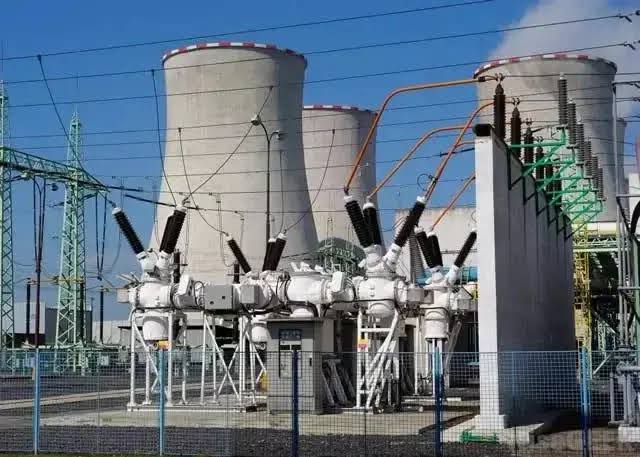- OPEC cuts 2025 oil demand forecast over US tariffs
Festus Okoromadu
Udeme Bassey
The 23 power generation companies in Nigeria have warned that they can no longer guarantee a steady electricity supply due to the worsening liquidity crisis in the electricity market, with outstanding debts now exceeding N4trn.
The firms, under the aegis of the Association of Power Generation Companies, raised the alarm in a statement issued on Monday and signed by the Chairman of the Board of Trustees, Col. Sani Bello (retd.).
They said the debt burden and operational constraints currently facing the companies could force an imminent shutdown of power plants if urgent interventions were not implemented.
They warned that the continued non-payment for electricity generated and consumed on the national grid was pushing the Nigerian power sector towards a total collapse.
The statement, titled ‘Over N4trn unpaid invoices threaten GenCos imminent shutdown’, lamented the lack of a clear financing plan from the Federal Government, alongside worsening fiscal and operational constraints within the Nigerian Electricity Supply Industry.
They also accused the Nigerian Bulk Electricity Trading Plc and other stakeholders of neglecting GenCos in the application of the NESI’s “waterfall arrangement”, which sees other service providers receive 100 per cent of their market invoices while GenCos get as little as 9 per cent to 11 per cent of what is due.
The statement read, “The Power Generation Companies (“GenCos”) are constrained to issue this press release to draw the attention of the Federal Government and key stakeholders to the need to urgently address the issue of inadequate payment for electricity generated by them and consumed on the national grid, which is currently threatening the continued operation of their power generation plants.
“Against the backdrop of the many challenges facing the power sector in Nigeria, the crises from cash liquidity are on the top burner and have reduced GenCos’ ability to continue to perform their obligations, thereby threatening to completely undermine the Electricity value chain.
“In the light of the severity of the issues highlighted above, the GenCos are requesting that immediate and expedited action be taken to prevent national security challenges that may result from the failure of the GenCos to sustain steady generation of electricity for Nigerians.”
Recall that in February, the Minister of Power, Adebayo Adelabu, disclosed that the government owes electricity generation companies and electricity distribution companies over N4 trillion in electricity subsidies.
Giving a breakdown, the minister said N2 trillion is owed to GenCos as legacy debt, while another N1.9 trillion is owed to them as part of the electricity subsidy for 2024, while DisCos are owed N450 billion for the 2024 electricity subsidy.
OPEC cuts 2025 oil demand forecast over US tariffs
In a related development, the Organization of Petroleum Exporting Countries on Monday announced a slight cut in its forecast for oil sales due to the impact of recent US tariffs on the global economy.
In its Monthly Oil Market Report for April, the Secretariat now sees demand growing by 1.3 million barrels per day (bpd) in 2025, down from a previous forecast of 1.4 million bpd.
The price of OPEC’s basket of twelve crudes fell to $66.25 a barrel on Monday, compared with $70.85 the previous Friday, according to OPEC Secretariat calculations.
U.S. President Donald Trump’s trade tariffs as well as a plan for higher output by OPEC+, which includes OPEC and allies such as Russia, have put downward pressure on oil prices this month and raised concern about economic growth.
OPEC said trade concerns would contribute to volatility but had kept forecasts steady, saying the global economy would adjust.
“The global economy showed a steady growth trend at the beginning of the year, however, recent trade-related dynamics have introduced higher uncertainty to the short-term global economic growth outlook,” OPEC said in Monday’s report.
OPEC’s report also showed that crude production by the wider OPEC+ fell in March by 37,000 bpd to 41.02 million bpd due in part to reductions by Nigeria and Iraq.
The development comes after the eight OPEC+ countries, which previously announced additional voluntary adjustments in April and November 2023, namely Saudi Arabia, Russia, Iraq, UAE, Kuwait, Kazakhstan, Algeria, and Oman, met virtually on April 3, 2025 to review global market conditions and outlook.
In view of the continuing healthy market fundamentals and the positive market outlook, and in accordance with the decision agreed upon on December 5, 2024, subsequently reaffirmed on March 3, 2025, to start a gradual and flexible return of the 2.2 million barrels per day voluntary adjustments starting from April 1, 2025.
The eight participating countries will implement a production adjustment of 411 thousand barrels per day, equivalent to three monthly increments, in May 2025.
It added that the flexibility will allow the group to continue to support oil market stability.
The eight OPEC+ countries also noted that this measure will provide an opportunity for the participating countries to accelerate their compensation.
The eight countries will meet on May 5, 2025 to decide on June production levels.

